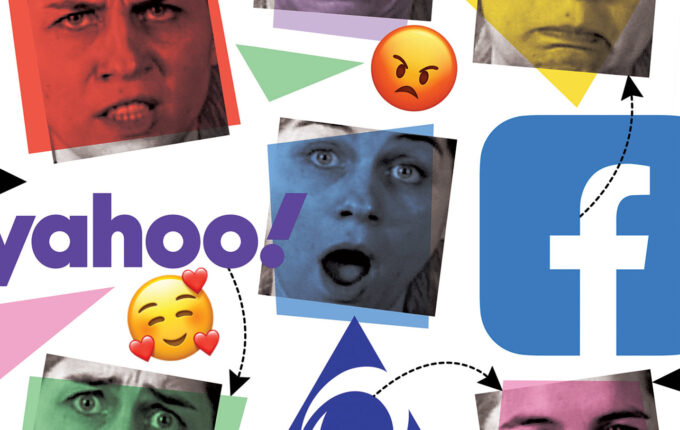The Forgotten Web

The Digital Age and the Search for Selfhood
In her book Searches: Selfhood in the Digital Age, Vauhini Vara delves into the complex relationship between individuals and technology. She explores how we rely on the internet, often without fully understanding the implications of our dependence. Through a blend of personal narrative and historical analysis, Vara reflects on how the digital world has shaped her life and the broader human experience.
A History of Emotional Contagion and Ethical Dilemmas
One of the most significant moments in the history of social media came in 2014 when three researchers published a study in the Proceedings of the National Academy of Sciences. Their experiments demonstrated that emotional states could be influenced by others, even through online interactions. However, this research was conducted without the consent of over 689,000 Facebook users, raising serious ethical concerns about the manipulation of user experiences.
The backlash against this experiment highlighted the growing distrust in tech companies. Facebook, now known as Meta, faced numerous scandals, including the Cambridge Analytica data breach and its role in inciting violence in Myanmar. These incidents underscored the power of Big Tech and the lack of accountability for its actions. Despite public apologies, these issues often fade from memory, and users continue to engage with these platforms.
The Rise of Big Tech and the Surveillance State
Big Tech companies like Meta, Alphabet, Amazon, Apple, and Microsoft have become central to our daily lives. They manage our communications, track our movements, store sensitive information, and collect vast amounts of data. This data collection is not just a byproduct of their services; it is a core part of their business model. The scale of this data gathering is unprecedented, and it raises critical questions about privacy, free will, and individuality.
Vara draws parallels between the data-driven ambitions of Big Tech and religious concepts such as the "Book of Life" or the "record of deeds." In the modern era, our actions—whether they are minor or major—are recorded and analyzed by these companies. This level of surveillance has led to a cultural shift, where some people refer to Google as “Make God your Google,” reflecting a growing reliance on technology for guidance and answers.
Personal Encounters with the Internet
Vara’s journey with the internet began in childhood. Born in Saskatchewan, Canada, she grew up in a family of immigrants from India. Her early exposure to the internet came through a classmate who used a modem to connect to the web. This encounter sparked her curiosity and led her to explore America Online (AOL), where she spent hours chatting with strangers. For a child who often felt isolated due to a skin condition, the internet became a safe space to ask questions and seek answers.
Yahoo emerged as a key resource for her, particularly when dealing with health issues. Instead of seeking help from adults, she turned to the search engine for information about eczema and psoriasis. This pattern of using the internet to find solutions continued throughout her life, especially during difficult times, such as when her sister was diagnosed with cancer.
The Intersection of Technology and Identity
As Vara navigated her teenage years, she found herself increasingly drawn to the internet. Her experiences with technology were not just about convenience but also about self-discovery. She used search engines to explore her identity, asking questions about relationships, spirituality, and personal growth. These queries, which spanned a wide range of topics, revealed the depth of her inner thoughts and the complexity of her personality.
In her book, Vara examines how technology has influenced her sense of self. She presents a curated list of her Google searches, highlighting the various aspects of her life that she has explored through the internet. While this list offers a glimpse into her personal history, it also underscores the selective nature of self-presentation in the digital age.
The Role of Big Tech in Everyday Life
Vara’s exploration of technology extends beyond her personal experiences to the broader impact of Big Tech on society. She discusses the rise of companies like Google and Amazon, tracing their evolution from small startups to global giants. These companies have transformed the way we access information, shop, and communicate, but they have also raised concerns about monopolization, labor practices, and data privacy.
Her analysis of Amazon, in particular, highlights the ethical dilemmas associated with using such platforms. While she acknowledges the moral arguments against shopping on Amazon, she also recognizes the convenience it offers. To reconcile this conflict, she adopts a strategy of writing detailed reviews for every product she purchases, a small act of resistance against the corporate machine.
The Future of Human Connection
In the final chapters of Searches, Vara reflects on the future of human connection in the digital age. She engages with artificial intelligence, using ChatGPT to discuss her work and receive feedback. While the AI provides summaries of her chapters, it lacks the depth and nuance of human interaction. This contrast emphasizes the irreplaceable value of human relationships and the limitations of technology in capturing the essence of being human.
Vara’s insights challenge readers to consider the role of technology in their own lives. As we continue to navigate the complexities of the digital world, the question remains: How can we maintain our individuality while benefiting from the conveniences of technology? The answer lies in awareness, critical thinking, and a commitment to preserving the human spirit in an increasingly automated world.
Post a Comment